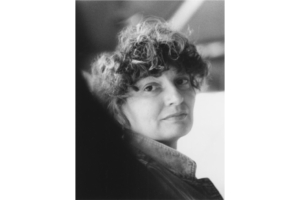Kisses Enough
 Today is my mother’s 83rd birthday. I will be visiting, and eating cake. (3:00 at The Haven — you’re invited!) The last time I visited, she looked around the room, then back at me, a smug expression on her face, and said, “All the boys here like me.”
Today is my mother’s 83rd birthday. I will be visiting, and eating cake. (3:00 at The Haven — you’re invited!) The last time I visited, she looked around the room, then back at me, a smug expression on her face, and said, “All the boys here like me.”
Here is an old poem.
Kisses Enough
Pictures of her are always pictures of sisters,
little girls in a row, bangs
cut straight over eyes dark as plums. My mother
with one sister eleven months older, another
in only two years, was never a lone darling
posed on a mother’s knee. Even an infant,
dandled in arms, she’s not with her mother,
but her two oldest sisters,
sisters who named her “Beverly Ann,”
then married out before she found her first word.
Daughters of sisters came back, tossing
more brown ponytails into the jumble
of girls in that house. Giggles slipped
like a magician’s scarves under the bathroom door.
Boys tapped fingers on restless knees. One by one,
sisters married, while my mother waited, for three years
the oldest at home, even her younger sisters
chosen away. Days fell from schoolwork
to housework. She listened nights
for the crunch of his boot on the graveled drive.
When would he come? That Prince
charming enough to climb forsythia vines
to find her, press his knuckle to her window?
She dreamed his touch better than any mother’s.
She dreamed kisses enough.






